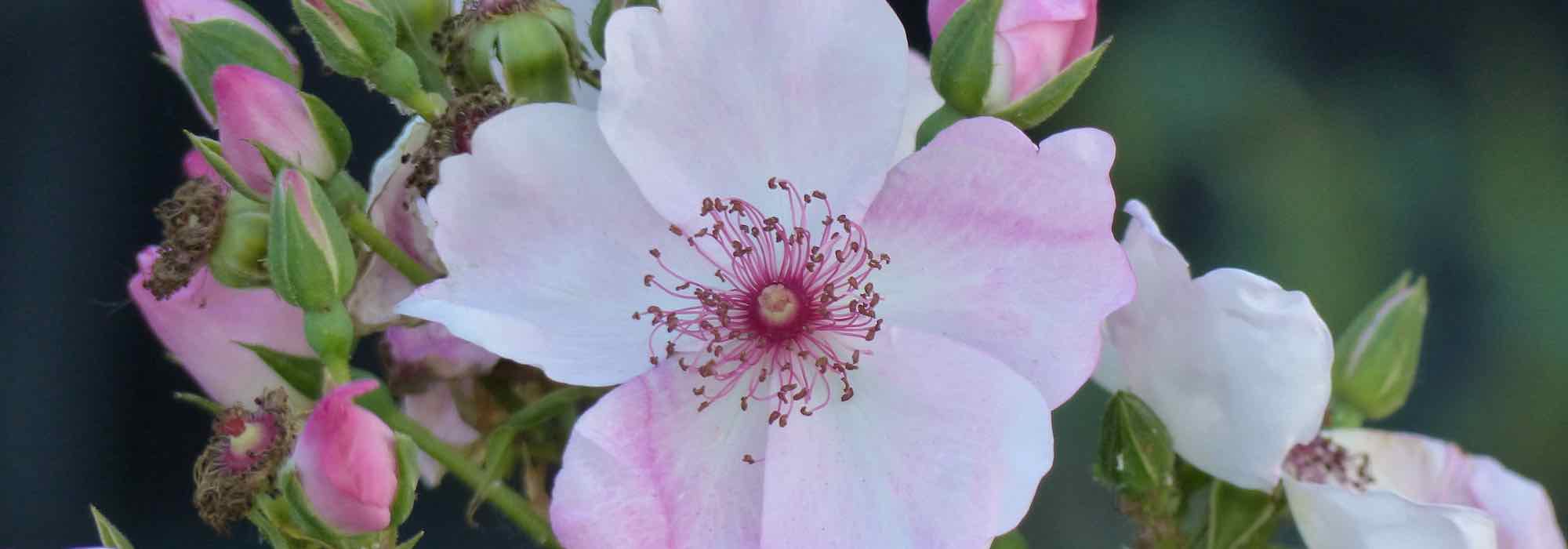
Sulphur in the garden: how and why to use it?
An organic fungicidal treatment compatible with organic farming
Contents
Since ancient times, sulphur has been a gardener’s companion for protecting crops. An age-old remedy that remains relevant today, it is still one of the few products that is both effective, natural and permitted in organic farming. It not only helps combat certain dreaded diseases, such as powdery mildew or scab, but also plays a nutritional role, often overlooked.
So why and how should we use it in the garden today, without harming the balance of wildlife and soil?
Sulphur: A Vital Yet Often Overlooked Element for Plants
Sulphur is one of the essential elements that plants need to thrive, just like nitrogen, phosphorus or potassium. It plays a role in protein production, photosynthesis and the proper functioning of enzymes. Normally, it occurs naturally in the air, rainwater or certain soils. But with the reduction in pollutant emissions, plants receive less sulphur than they used to. And as manure, another valuable source of sulphur, is being used less and less, deficiencies are becoming more common, especially in demanding crops.
When a plant lacks sulphur, it first becomes apparent on its young leaves: they turn pale, almost yellow, a sign that photosynthesis is slowing down. Growth is stunted, and diseases find their way more easily.
Sulphur: A Naturally Powerful Antifungal Agent
It’s no coincidence that sulphur has remained a cornerstone of fungal control. It works by releasing vapours that prevent spore development, without needing to penetrate the tissues. This is a surface treatment, but a highly effective one… provided it’s applied under the right conditions. Powdery mildew is its preferred target, but it also works against scab, certain galls, vine erineum and even red spider mites. It’s used on roses, fruit trees, vegetables and even flowering plants sensitive to treatment like begonias.
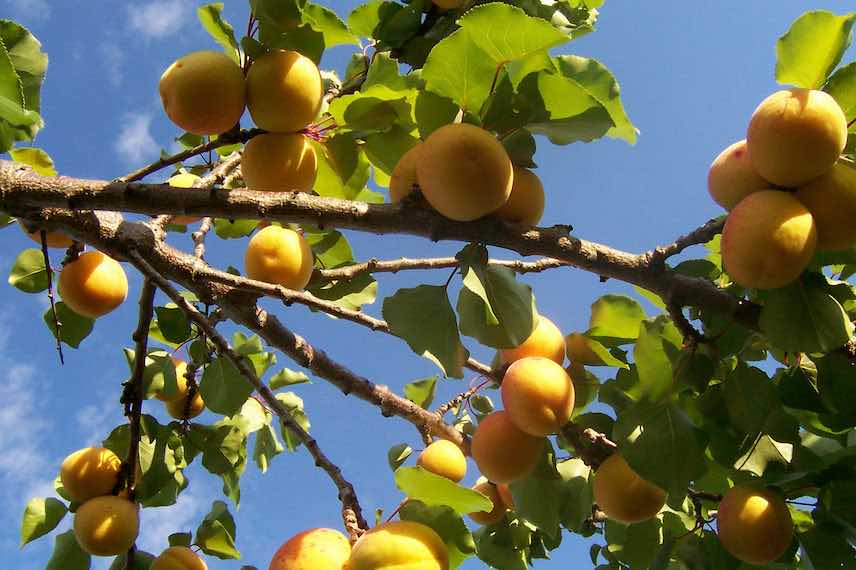
Sulphur application will protect the apricot tree
When and how to apply sulphur in the garden for it to be truly effective?
Sulphur is weather-sensitive. To be effective, it’s best applied in dry weather when temperatures are around 20 to 25°C. Below this range, it works less efficiently. Above, it becomes irritating to the leaves and may cause burns. Therefore, avoid very hot afternoons and prefer morning or evening applications. Once sprayed, it protects the plant for about a week. But heavy rain or storms may wash it away: in this case, you’ll need to reapply the treatment.
It most commonly comes in two forms: as a powder to dust directly onto the leaves, or as a wettable version to dilute in water, more suitable for large areas. In both cases, it remains a contact product: it doesn’t penetrate the plant and doesn’t protect new leaves. This is why it works mainly as a preventive measure, or at the first signs of disease.
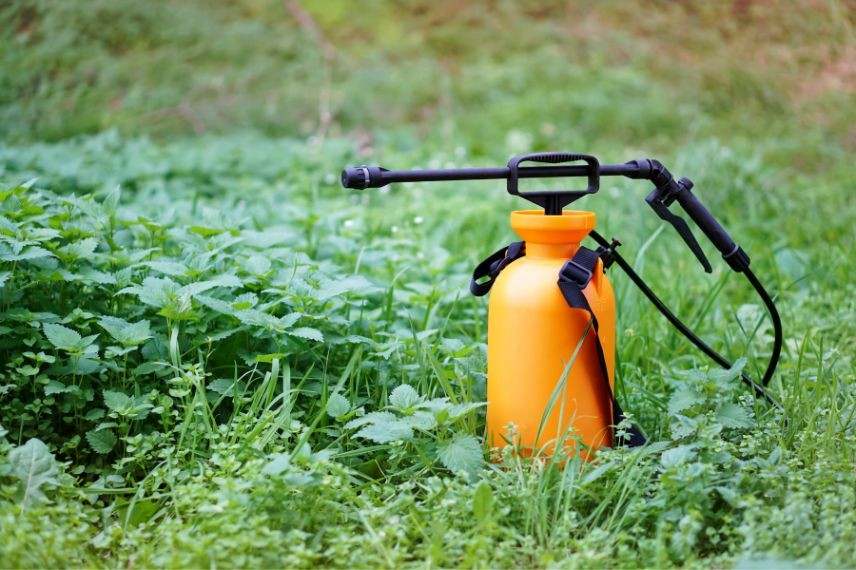
And what about edible plants?
Sulphur is permitted on fruits and vegetables, but with one condition: wait a few days between treatment and harvest. Generally, five to seven days are enough for all traces to be eliminated. This is an important precaution, especially if you plan to cook or preserve the harvests.
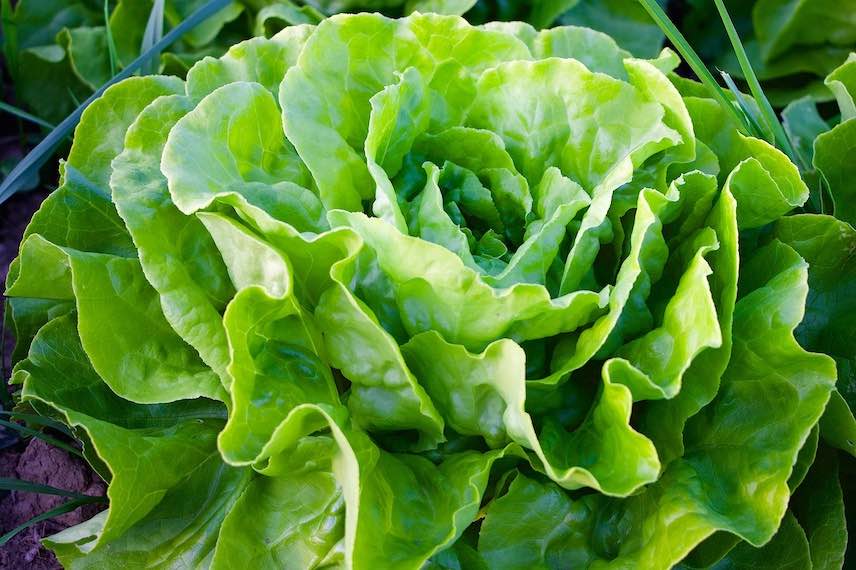
Protect your lettuces with sulphur!
Sulphur: A Natural Product, But Not Without Consequences
Although sulphur is natural, it still has an impact on the environment. In high doses, it can acidify the soil, which isn’t desirable for all plants. It may also disturb beneficial insects like bees, especially if applied during flowering. This is why it’s always recommended to use it sparingly, only when absolutely necessary.
As it can irritate the eyes and breathing passages, it’s best to wear a mask and avoid direct contact with the skin. Once again, sensible use makes all the difference.
Sulphur: A Valuable Ally for Natural Gardening
Sulphur is not a substitute for good prevention, but it remains an effective tool to avoid resorting to more aggressive chemical products. When used properly, it protects sensitive young plants without compromising the health of the soil or that of the gardeners. And while it doesn’t solve everything, it can make a difference when conditions are right for a disease to take hold.
- Subscribe!
- Contents
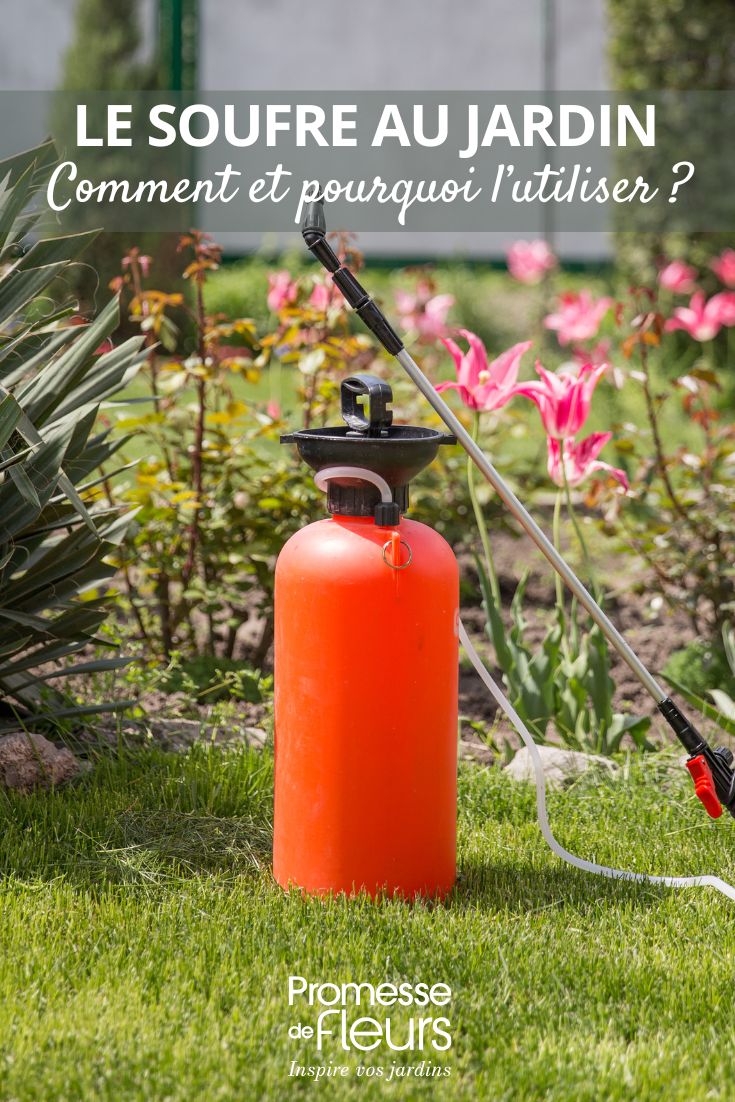































Comments